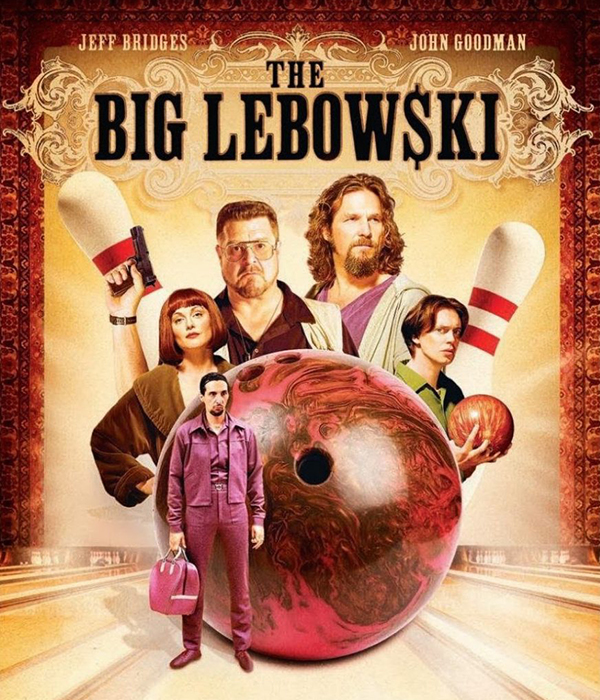The Big Lebowski
- 29 Jun 2020
- This movie has a cult following, both figuratively and literally. I'm not going to become a full-fledged Dudeist, but I have enjoyed watching the Dude's misadventure.

I watched the Coen brothers’ cult-classic for the first time last week. I’ve enjoyed the other Coen movies that I’ve seen, No Country for Old Men and Inside Llewyn Davis, but I haven’t been interested in The Big Lebowski during its 22 years of existence. I remember images and quotes being posted on the Fark message boards of old, but the movie hasn’t been in my orbit of pop culture until recently.
I watched it on Netflix out of boredom in one viewing, although I was tempted to stop partway through. John Goodman’s Walter Sobchak was more annoying than funny because of the ridiculous way he made every situation worse, but he was hilarious at the end. The curious case of Bunny Lebowski was intriguing and unpredictable enough to keep me watching to learn her fate.
I feel like I’ve already seen or read this type of story countless times. It starts with an aimless protagonist whose trivial problem leads him into a conspiracy involving a web of characters with conflicting motivations. I’ve seen a YouTube video that convincingly shows how The Big Lebowski is a film-noir movie despite not having the archetypical visuals. The movie starts as the quest of a middle-aged slacker trying to repair his vandalized rug.
Jeff Bridges is the titular Jeffrey Lebowski who answers to “Dude,” and he’s memorable in this role. For better or worse, his laid-back philosophy has inspired a real following known as Dudeism. Honestly, I can dig it, but we can’t all spend our days drinking White Russians and our nights bowling in hardcore leagues.
The rest of the cast is memorable in their roles as well. Besides Goodman, there’s Philip Seymour Hoffman as Brandt, Julianne Moore as Maude, Steve Buscemi as Donny, John Turturro as Jesus, Peter Stomare as Uli, and Tara Reid as Bunny. Sam Elliot is both ridiculous and enjoyable as the unnamed narrator who recounts the tale, which happens around the time of the first Gulf War. Actually, “ridiculous and enjoyable” describes the movie overall.
The dialogue is quotable, and I can see why people of my generation and the one before it have such an attachment to the movie; we were teenagers and young adults when the movie was released in 1998. I wonder how popular it is among today’s youth, but as long as their parents and older relatives are recommending it, the movie’s followers will grow in number. Being added to the Library of Congress National Film Registry in 2014 doesn’t hurt that cause.
The Big Lebowski isn’t a movie that I’ll re-watch countless times or list among my favorites, but I now understand why others do.